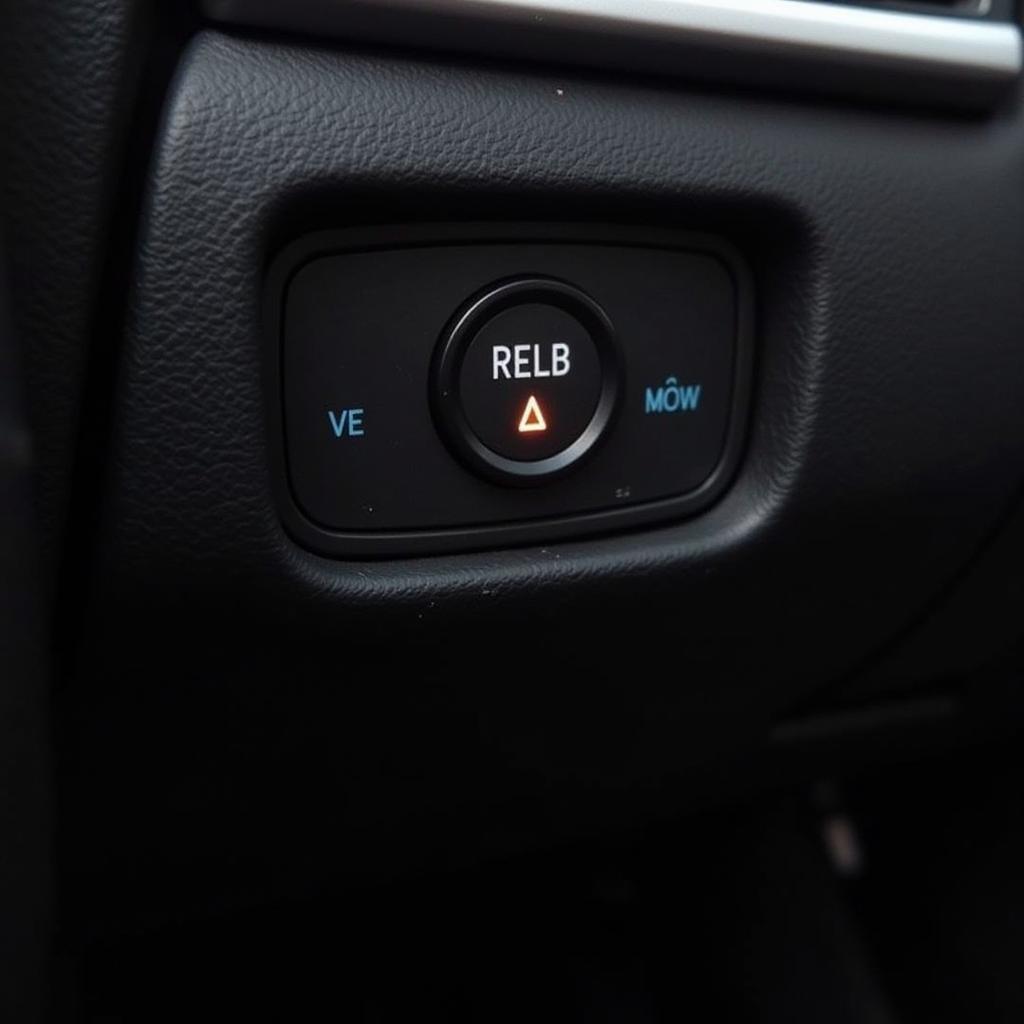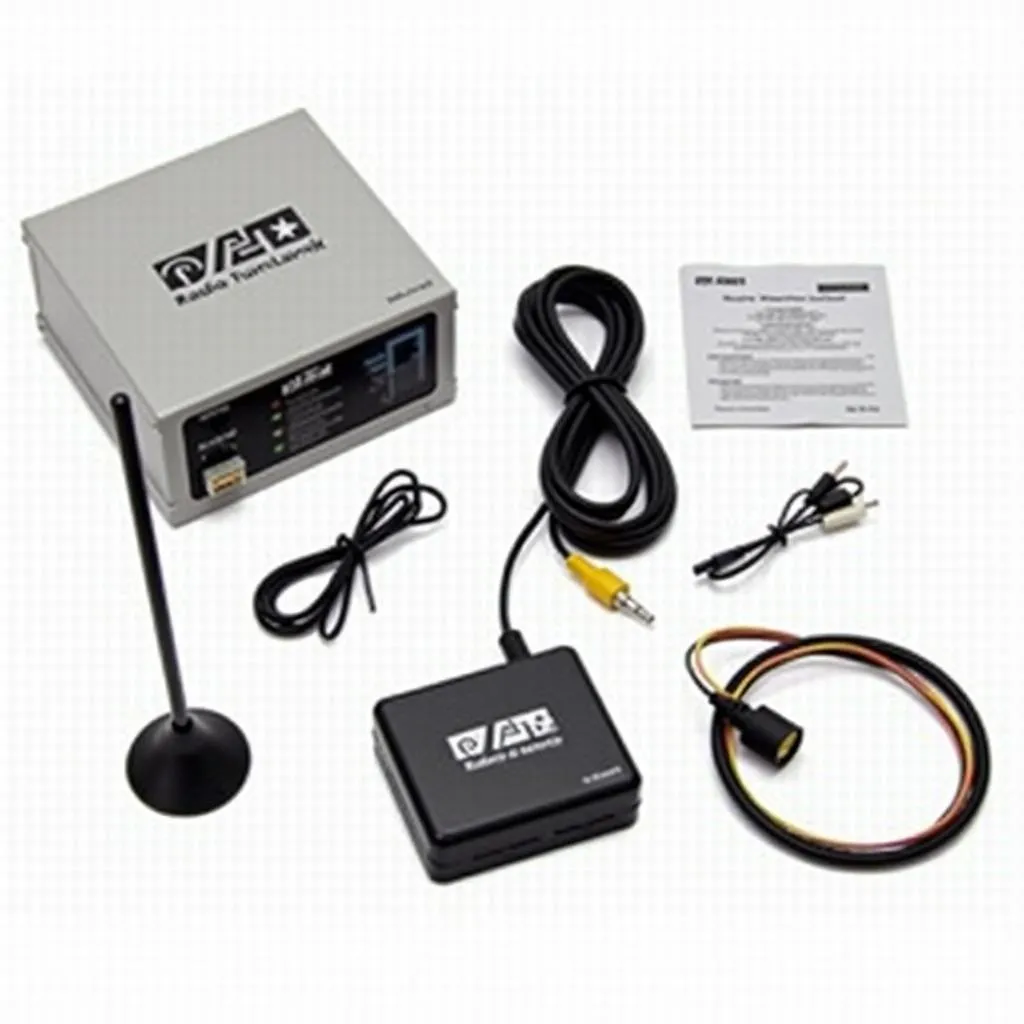A car battery that loses charge quickly can be a major inconvenience, leaving you stranded and frustrated. Understanding the causes and solutions for this common issue is key to keeping your vehicle running smoothly. This article will guide you through the process of diagnosing and fixing a rapidly discharging car battery, empowering you to take control of your car’s electrical health. car battery loses charge overnight
Why Does My Car Battery Lose Charge Quickly?
Several factors can contribute to a car battery losing its charge rapidly. Identifying the root cause is crucial for effective repair. These range from simple issues like leaving your lights on to more complex problems with the car’s electrical system.
- Parasitic Drain: This occurs when an electrical component continues to draw power even when the car is off. Common culprits include interior lights, faulty door switches, or malfunctioning radios.
- Failing Alternator: The alternator recharges the battery while the engine is running. A faulty alternator can’t replenish the battery, leading to a quick discharge.
- Old or Damaged Battery: Over time, a car battery’s ability to hold a charge diminishes. Physical damage or extreme temperatures can also shorten its lifespan.
- Corroded Battery Terminals: Corrosion on the battery terminals can impede the flow of electricity, leading to charging issues and a rapid loss of charge.
- Extreme Temperatures: Both extreme heat and cold can affect a battery’s performance and longevity.
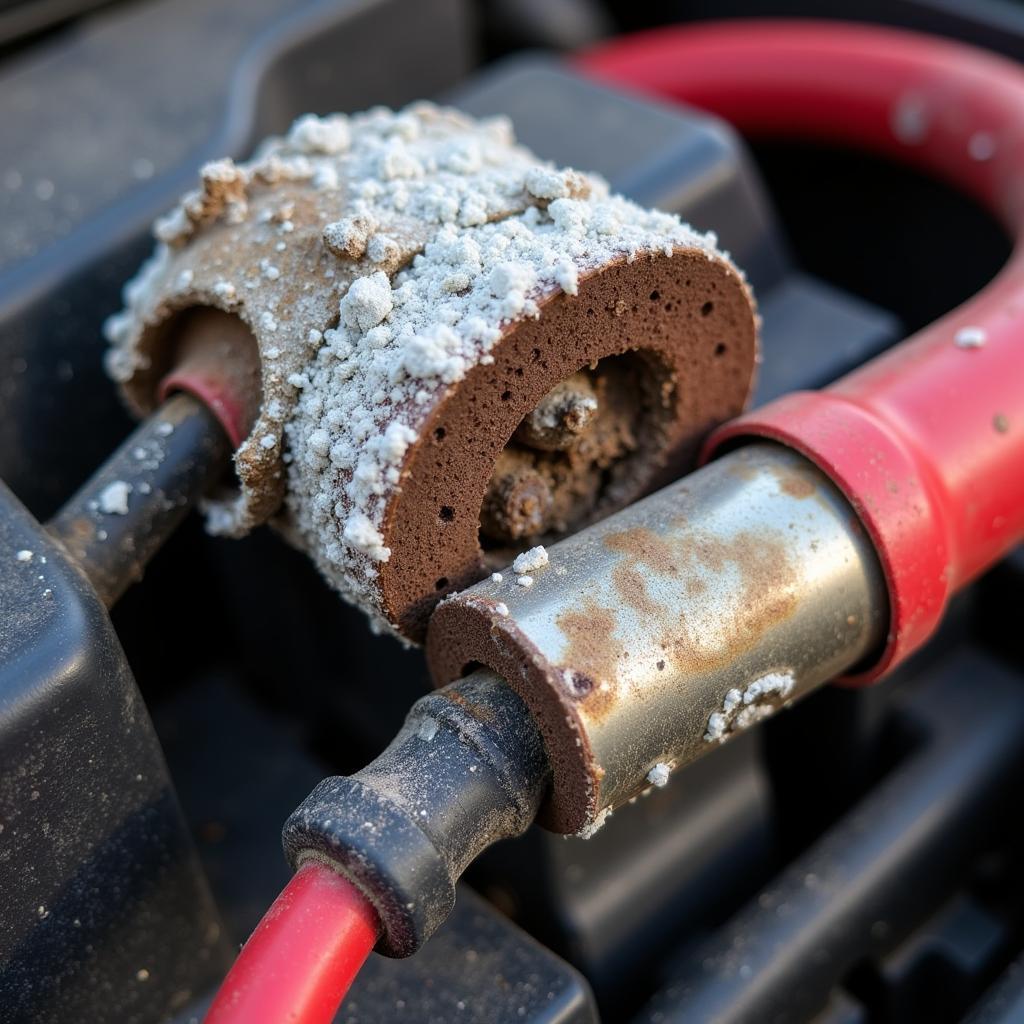 Car Battery Corrosion on Terminals
Car Battery Corrosion on Terminals
Diagnosing a Rapidly Discharging Car Battery
Pinpointing the reason behind your car battery woes requires some investigative work. Several tools and techniques can help you identify the source of the problem.
Using a Multimeter to Find a Parasitic Draw
A multimeter can be used to measure the current draw when the car is off, helping you identify any parasitic drains. finding battery drain with multimeter This involves disconnecting the negative battery cable and connecting the multimeter in series.
Testing Your Alternator
A simple voltage test can determine if your alternator is functioning correctly. With the engine running, the voltage across the battery terminals should be around 14 volts.
Checking Battery Health
A battery tester can provide insights into the overall health and charge capacity of your battery. This helps determine if a replacement is necessary.
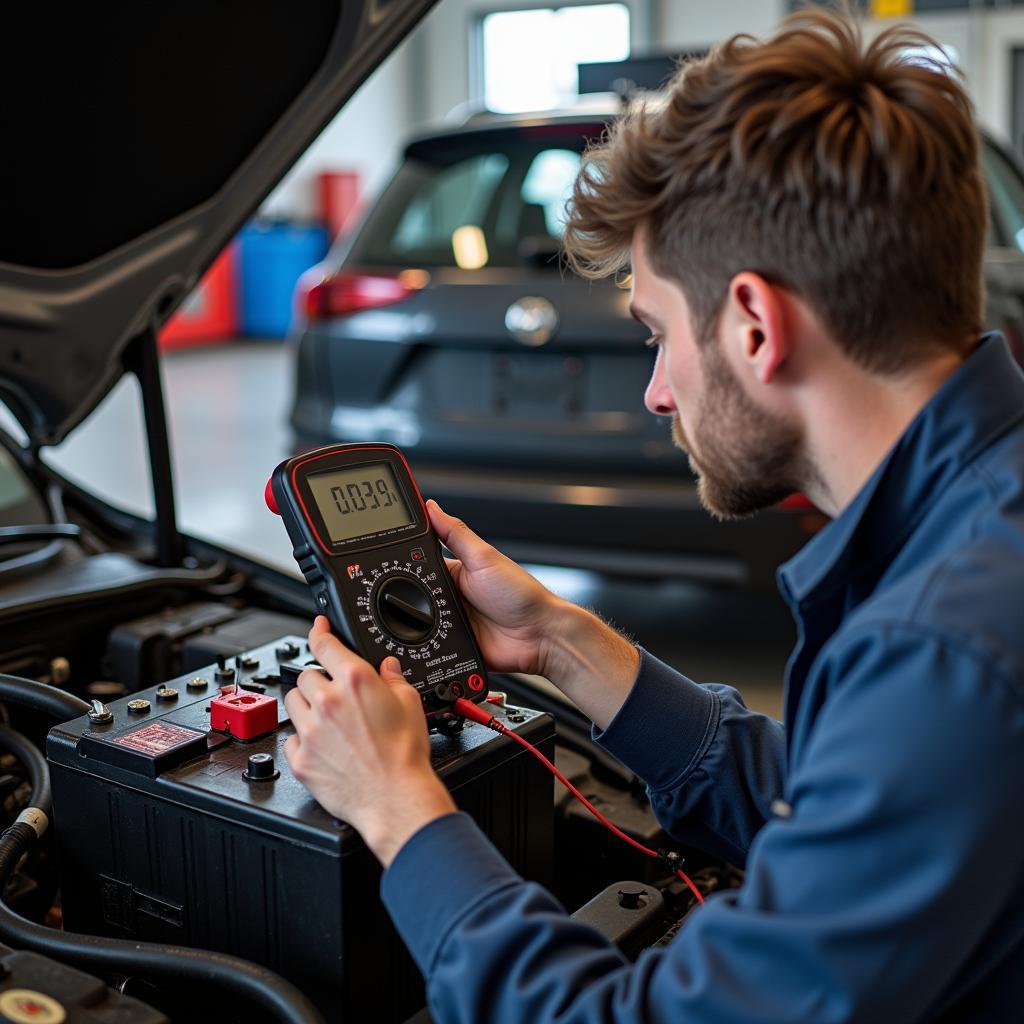 Testing Car Battery with Multimeter
Testing Car Battery with Multimeter
Solutions for a Quickly Discharging Car Battery
Once you’ve diagnosed the cause, you can implement the appropriate solution.
Addressing Parasitic Drains
If a parasitic drain is detected, carefully inspect all electrical components for faults. Repair or replace any faulty switches, relays, or modules.
Replacing a Failing Alternator
A failing alternator should be replaced promptly to ensure the battery is adequately charged.
Installing a New Battery
If your battery is old or damaged, replacement is the best course of action. Choose a battery that meets your vehicle’s specifications. new battery drained overnight, battery loses charge overnight
Cleaning Corroded Battery Terminals
Clean corroded terminals with a mixture of baking soda and water. Apply a protective coating to prevent future corrosion.
“Regular maintenance, including cleaning battery terminals and checking for parasitic drains, can significantly extend the life of your car battery,” says John Smith, ASE Certified Master Technician.
Preventing Future Battery Problems
Regular maintenance is key to preventing future battery issues.
- Regularly clean the battery terminals.
- Have your battery and charging system tested annually.
- Be mindful of electrical accessories and avoid leaving them on when the car is off.
- Park in a garage or shaded area during extreme temperatures.
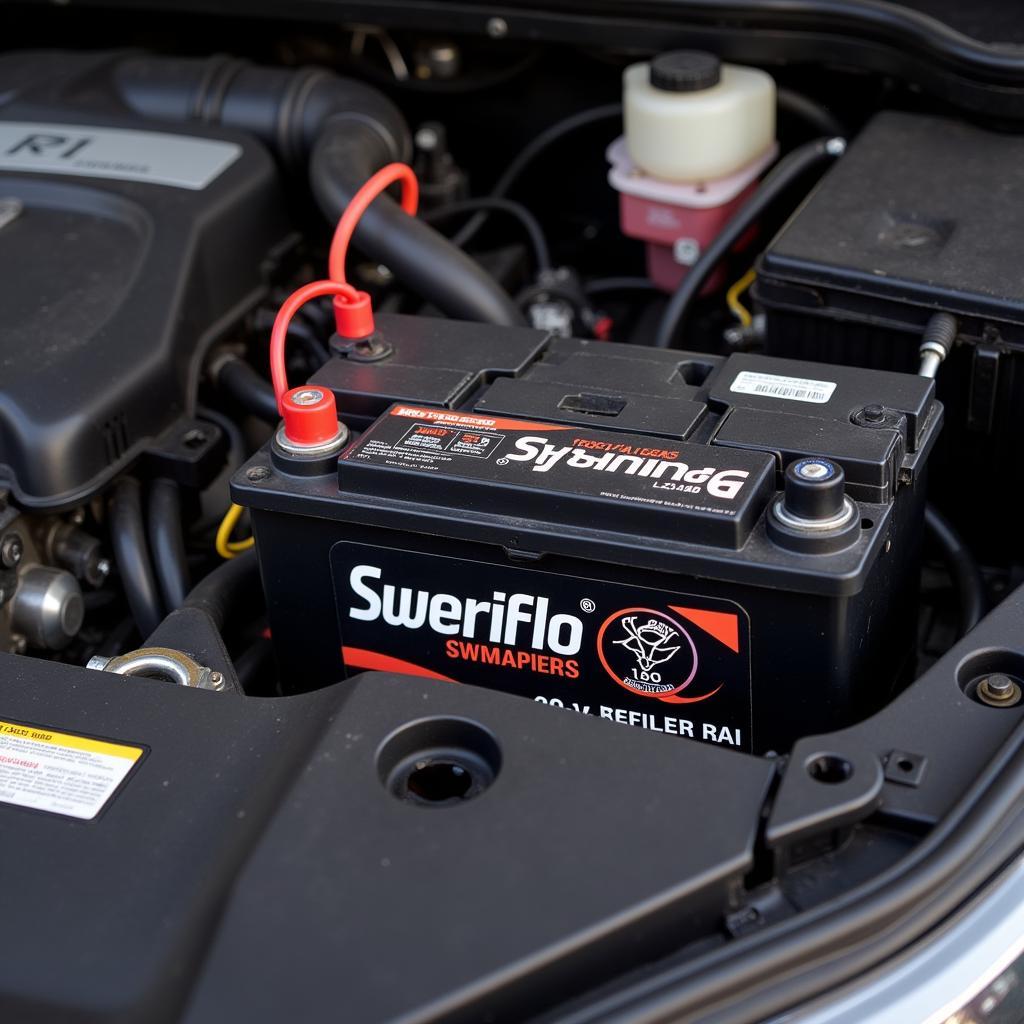 New Car Battery Installation
New Car Battery Installation
Conclusion
A car battery that loses charge quickly can be a frustrating problem. By understanding the causes and applying the appropriate diagnostic techniques, you can effectively address the issue and get back on the road. Regular maintenance is essential for preventing future battery problems and ensuring your car’s electrical system remains in top condition. Remember to address any issues promptly to avoid being stranded with a dead battery. corsa c battery drain
“Addressing battery issues proactively not only saves you time and money but also ensures your safety on the road,” adds Sarah Jones, Lead Automotive Electrical Engineer at Advanced Auto Solutions.

